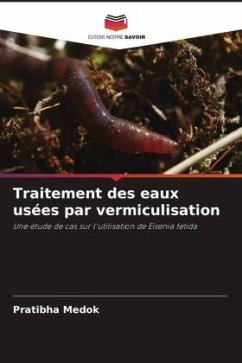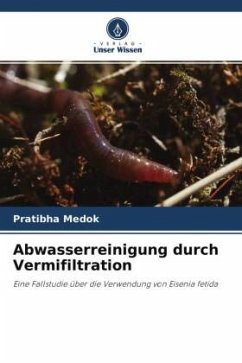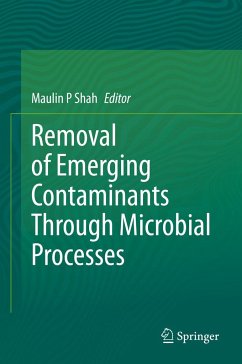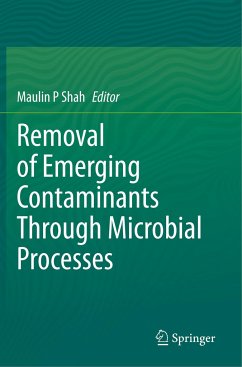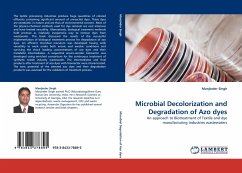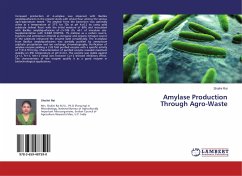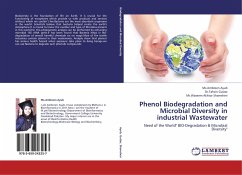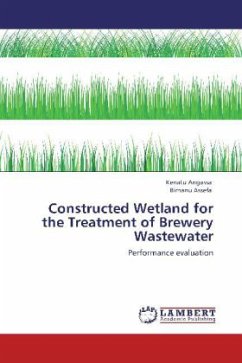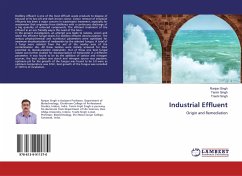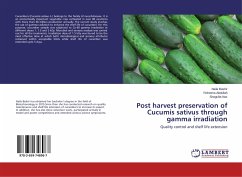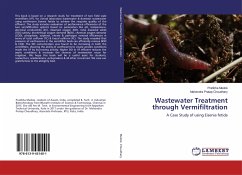
Wastewater Treatment through Vermifiltration
A Case Study of using Eisenia fetida
Versandkostenfrei!
Versandfertig in 6-10 Tagen
41,99 €
inkl. MwSt.

PAYBACK Punkte
21 °P sammeln!
This book is based on a research study for treatment of two field scale vermifilters (VF), for clinical laboratory wastewater & domestic wastewater using earthworm Eisenia fetida to achieve the requisite quality of the effluent. The study includes evaluation of performance efficiencies of the two vermifiltration systems based on parameters like pH, temperature, electrical conductivity (EC), dissolved oxygen (DO), total dissolved solids (TDS) salinity, biochemical oxygen demand (BOD), chemical oxygen demand (COD), phosphate, sulphate, nitrate & pathogen removal efficiencies in terms of total co...
This book is based on a research study for treatment of two field scale vermifilters (VF), for clinical laboratory wastewater & domestic wastewater using earthworm Eisenia fetida to achieve the requisite quality of the effluent. The study includes evaluation of performance efficiencies of the two vermifiltration systems based on parameters like pH, temperature, electrical conductivity (EC), dissolved oxygen (DO), total dissolved solids (TDS) salinity, biochemical oxygen demand (BOD), chemical oxygen demand (COD), phosphate, sulphate, nitrate & pathogen removal efficiencies in terms of total coliform (TC) & faecal coliform (FC). The study revealed that presence of earthworms in the vermifilter beds can efficiently remove BOD & COD. The DO concentration was found to be increasing in both the vermifilters, showing the ability of earthworms to create aerobic conditions inside the VF by burrowing activity. Higher DO in VF effluent reduces the septic conditions & increases the chances of wastewater reuse for irrigation. We hope this book will be a useful asset for students, researchers, academicians, policymakers & all other concerned. We owe our gratefulness to the almighty God.



